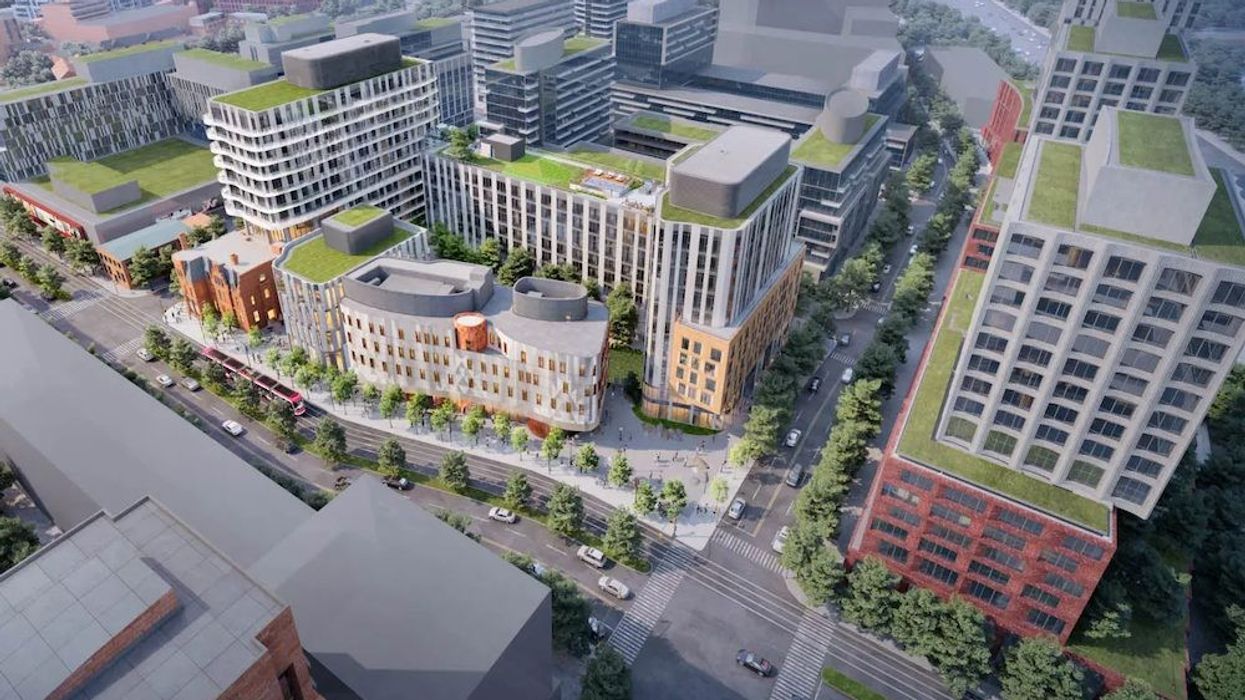On National Indigenous Peoples Day, the Indigenous community and its allies and partners broke ground on the first mixed-use, purpose-built Indigenous Hub in the province.
The 2.4-acre Indigenous Hub, which is also one of the first in the country, spans an entire city block at Front and Cherry Streets in Toronto's West Don Lands and will provide crucial services around health, employment, and culture.
Anishnawbe Health Toronto (AHT), along with its partners, broke ground in a ceremony at the site near Mill and Cherry Streets downtown Monday, marking where the large Hub will be housed.
The socially-distanced milestone featured a pipe ceremony conducted by Cree Traditional Healer Pete Keshane, First Nations drummers Young Creek, and four fancy shawl dancers.
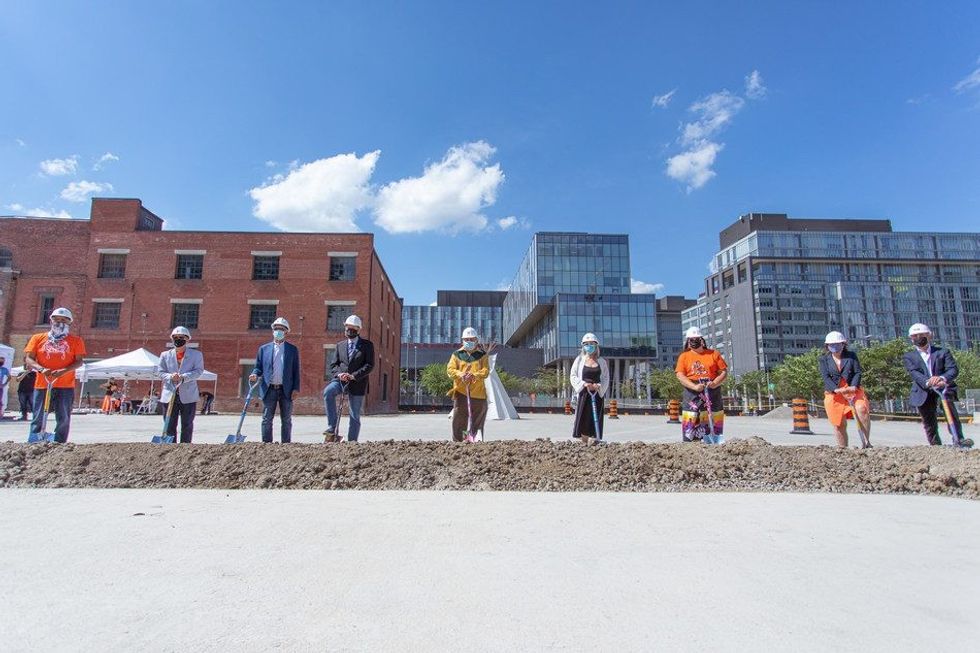
READ: Toronto Finally Gets Its First Indigenous Healthcare Centre
Joe Hester, Executive Director of AHT, said Monday's groundbreaking was a major milestone that's been years in the making.
"The site will be a gathering place for the Indigenous people from across Turtle Island and a home to support the reclamation of culture and identity," said Hester.
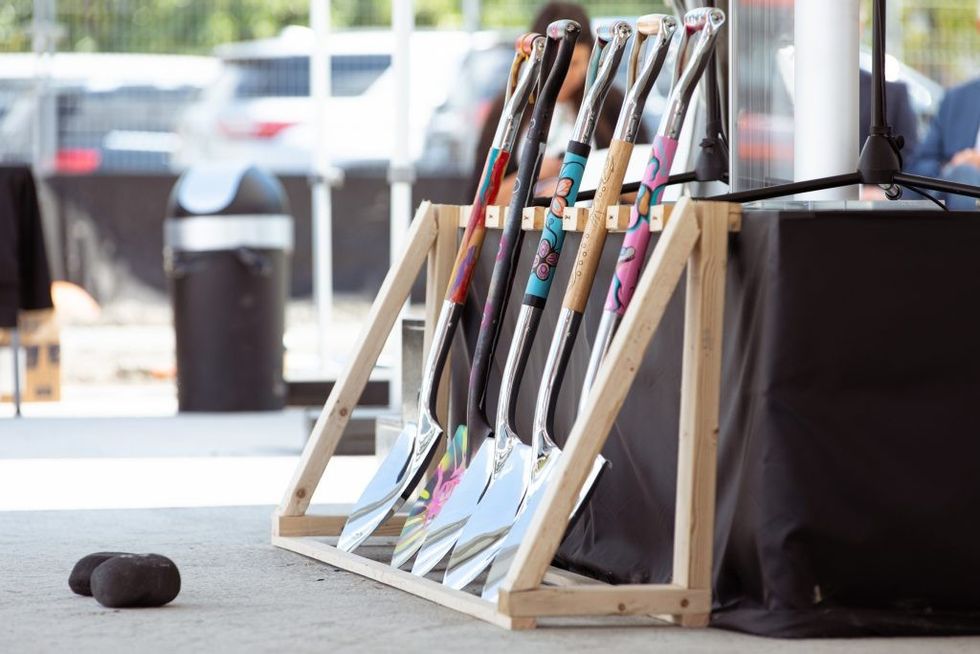
"In fact, this project will advance on many fronts including the restoration of traditional medicines and green space to this block that has an industrial past; implementing architectural guidelines for Indigenous design developed for this project; and to land ownership and lease agreements with development partners that will guide and support the Hub forward for seven generations and more."
The mixed-use development will include the new 4-storey home of AHT, the 4-storey Miziwe Biik Training Institute, a municipally-operated childcare and family centre, the 13-storey Canary House mixed-use condominium building, and the restoration of the historic Canary Restaurant building for commercial use by Dream Unlimited Corp and Kilmer Group.
The hub will also contain an 11-storey purpose-built rental building, developed by Dream, Dream Impact Trust, Kilmer, and Tricon Residential.
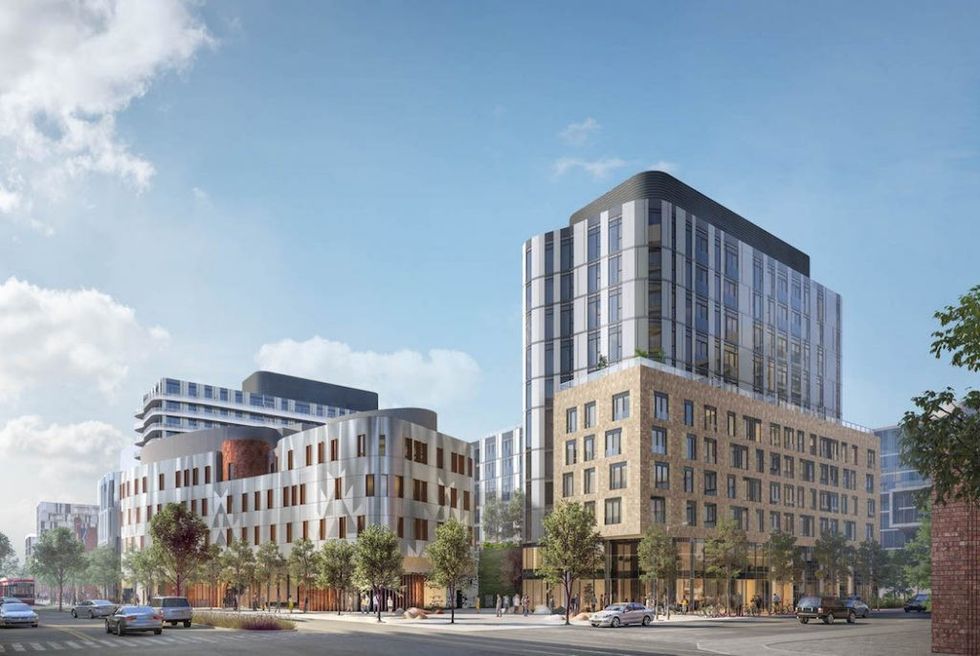
BDP Quadrangle, in collaboration with Stantec and Indigenous-owned Two Row Architect, designed the project's master plan, while ERA Architects is overseeing the restoration of the Canary Restaurant Building.
Two Row Architect also served as the design consultant on the entire project, developing eight Indigenous design guidelines that ensured all aspects of the Hub honoured Indigenous knowledge, history, and values, including materiality, attention to detail through craftsmanship, directionality, and movement of the sun, among others.
The 45,000-sq.ft Anishnawbe Health Toronto Community Health Centre will offer holistic health programs and services that integrate Indigenous and Western approaches. The Ministry of Health will fund the Health Centre's construction with community support from donors through Anishnawbe Health Foundation.
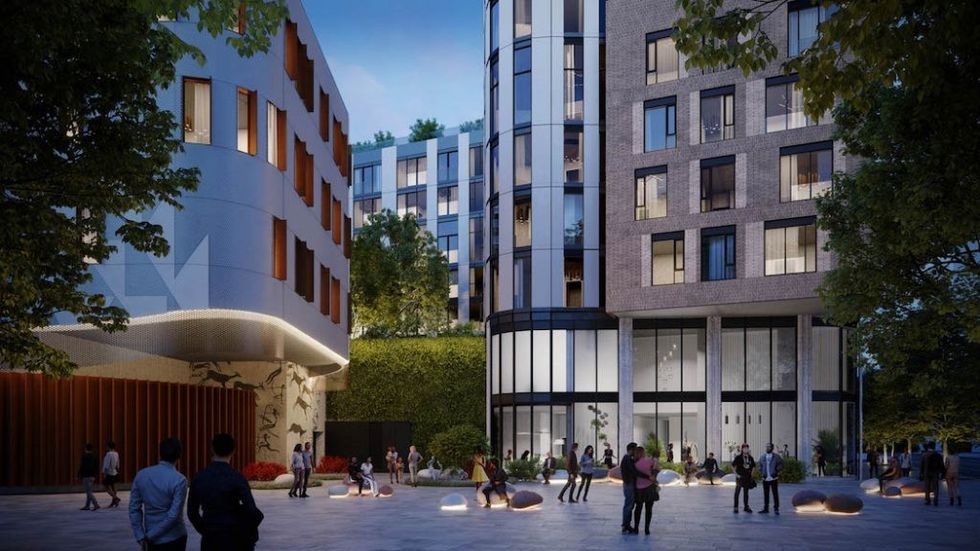
Neighbouring the health centre is the Miziwe Biik Training Institute, which will serve as the employment and training partner. The new building will offer a hands-on carpentry workshop, tutoring classrooms, a business incubator, and other multi-purpose training spaces for programming and gatherings, as well as the childcare and family centre. The Institute will enable Miziwe Biik to double its physical space, helping to support 700 to 1,000 Indigenous people in securing new jobs annually.
"The Miziwe Biik Training Institute is an opportunity to realize the full potential of the GTA's Indigenous community and provide the local population with the skills and credentials to attain good paying jobs," said Nancy Martin, Executive Director of Miziwe Biik. "The Institute is an investment in the future prosperity of the Indigenous community living in the GTA and will contribute to Canada's economic recovery."
The new home for the Health Centre is scheduled to open by the end of 2022, while the rest of the Indigenous Hub’s completion is slated for 2024.
The ceremony fell on Indigenous Peoples Day and just weeks after a mass unmarked grave of 215 children was found in Kamloops, BC, at the site of a former residential school. As more graves are located, Ontario has committed $10 million to help support the identification, investigation, protection, and commemoration of Indian Residential School burial sites across the province.
